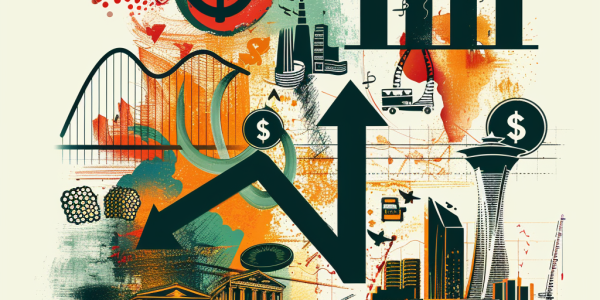US Consumer Price Index (CPI) Expected to Rise by 3.4% in April 2024
The US Consumer Price Index (CPI) for April 2024 is anticipated to rise by 3.4% year-over-year, slightly below the previous month’s increase. Market analysts and traders are closely monitoring these inflation trends as they have significant implications for various sectors of the economy, with data suggesting a trend of inflation fluctuating around projected figures.
California Law Proposition 12 Driving Up Pork Prices Nationwide, Congress Urged to Act
California’s Proposition 12 has led to a significant increase in pork prices, with consumers feeling the effects of rising costs and declining consumption. The impact is not limited to California, as pork farmers nationwide are facing compliance costs and higher prices. Congress must address this issue in the Farm Bill to protect farmers and consumers from the repercussions of such legislation.
Inflation Shows Strength in March Despite Market Resilience
Inflation showed strength in March, with the core PCE price index rising by 2.8% from a year ago. Personal spending outpaced income growth, leading to a decrease in the personal saving rate. Despite inflationary pressures, financial markets remained steady, with futures traders adjusting rate cut expectations. Chief Investment Officer George Mateyo cautioned against premature assumptions on rate cuts, emphasizing the need for further developments, particularly in the labor market.
Federal Reserve Plans Three Rate Cuts in 2024
The Federal Reserve plans to maintain the federal funds rate for now but intends to implement three quarter-percentage-point cuts by the end of the year. CBRE anticipates the first rate cut in June, with real estate capital markets activity expected to remain subdued initially. Despite economic uncertainties, leasing activity is forecasted to stay resilient as growth surpasses expectations. CBRE predicts two additional rate cuts in 2024, leading to a projected federal funds rate range of 4.50% to 4.75% by year-end.
Eurozone Inflation Declines in March, Setting Stage for Potential Rate Cut
Eurozone inflation dropped to 2.4% in March, potentially paving the way for a rate cut by the European Central Bank. Core inflation also decreased, while the US economy showed steady growth with inflation concerns. UK inflation eased less than expected, raising worries about persistent inflation pressures. Analysts are closely watching service inflation as an indicator of domestic price trends.
Inflation remains stubbornly high, posing dilemma for the Fed
Consumer prices rose 3.5% in March, slightly higher than economists predicted, marking a slight pick-up from February. Inflation remains stubbornly high, posing a dilemma for the Federal Reserve as policymakers aim for a 2% target before considering interest rate cuts. Factors contributing to inflation include rising rents, car insurance costs, and increasing gas prices due to rallying oil prices.
Inflation Surpasses Expectations, Impacting Nevada Families and Businesses
Recent data reveals that inflation in March has surpassed expectations, significantly impacting the budgets of families and businesses in Nevada. President Biden’s policies have led to a surge in the cost of groceries, rent, and electricity, causing economic strain. The National Republican Congressional Committee (NRCC) has expressed strong disapproval of the actions of Dina Titus, Susie Lee, and Steven Horsford, attributing the inflation crisis to their support of the Bidenflation agenda. These developments have raised concerns among the public, leading to a call for change in economic policies.
Inflation Defenders: 3 Stocks to Protect Your Purchasing Power
High consumer prices continue to strain investors, but these three stocks – Berkshire Hathaway, Procter & Gamble, and Walmart – offer protection. With inflation rates stubbornly high, these companies are immune to its impacts, making them strong options for safeguarding investments.
German Inflation Fall Raises Hopes for ECB Rate Cut
The recent fall in German inflation has raised hopes for a potential rate cut by the European Central Bank (ECB), with analysts speculating on the implications for financial markets and borrowing costs. The unexpected decline in inflation has led to growing anticipation for the central bank to introduce measures to boost inflation and economic momentum, amid concerns about slowing economic activity and global trade tensions. Market participants will closely monitor any announcements or signals from the ECB regarding its monetary policy stance in the coming months.
Record High Corporate Profits Boost U.S. Economy
Corporate profits reached record highs in the fourth quarter of last year, contributing to the strength of the U.S. economy. Positive economic indicators, such as decreasing inflation and growing GDP, have translated into soaring profits for America’s biggest companies. While some criticize corporate profits as contributing to economic challenges, others argue that it played a crucial role in preventing massive layoffs and sustaining the economy.










